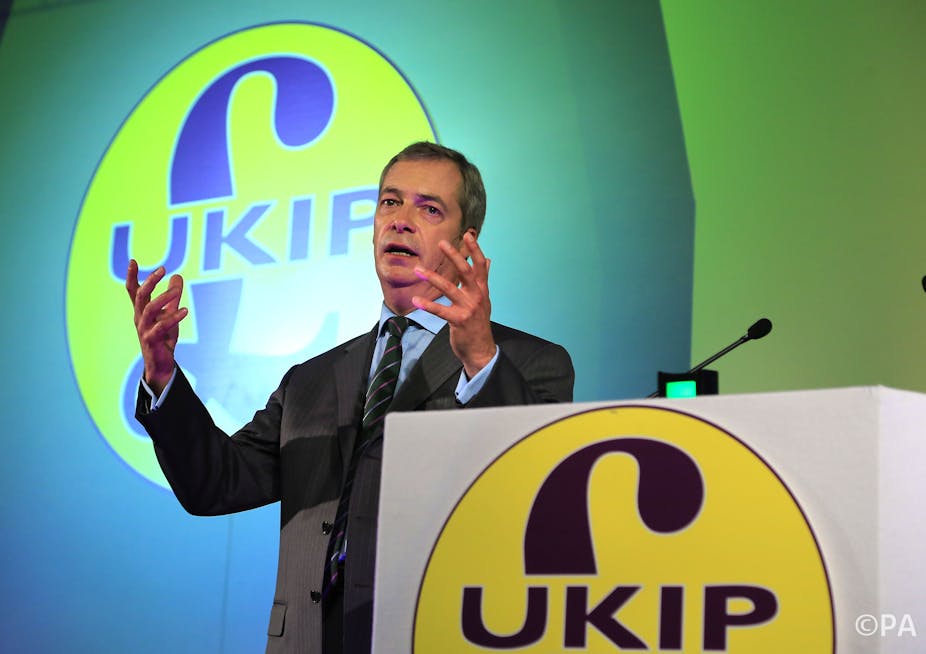Nigel Farage entered Doncaster racecourse to give the first of two speeches to the UKIP annual conference against a backdrop of Olympics-style inspirational house music. The soundtrack was appropriate given the high spirits of his party after the most successful year in its history.
Farage made it clear that UKIP will be taking aim at Labour in the months ahead, reflecting his party’s urgent need to broaden its appeal beyond disaffected Conservative voters. UKIP’s support remains heavily concentrated among white, working-class, “left-behind” voters. These are the people who find the party’s message of opposition to Brussels, Westminster and immigration the most appealing. They tend to be economically as well as socially right wing.
UKIP’s best electoral prospects now lie in recruiting disaffected, left-behind voters who are right wing on Europe, identity, immigration and other social issues, but economically left wing. Labour is alive to the threat of UKIP and has been looking to combat it by painting the party as more Tory than the Tories – a message facilitated by the CVs and past statements of many senior UKIP members. In response UKIP needs to craft a message which appeals to the left-wing instincts of “left-behind” voters without excessively antagonising the Thatcherite instincts of many of its activists and financial backers.
The advantage the party has in this area is that voters are unlikely to scrutinise its proposals very closely, so it can do magical things like promise to cut income tax for the rich and the poor simultaneously, while making vaguely costed, but presumably expensive, commitments on public services such as the NHS.
The disadvantage of the approach is the risk of attracting attention to the contradictions in the party’s views, particularly on issues outside its traditional comfort zone. Poorly devised policies or open feuding over ideological direction may be an own goal, undermining the party’s credibility with the more moderate voters such initiatives are designed to attract.
Farage’s speech suggests the party will aim to square this circle with a campaign filled with aggressive criticism of Labour’s failings in the north of England – but short on details about the UKIP alternative.
The intensity of public anger over the failure of governance that enabled the Rotherham child abuse scandal and other events make this an attractive option and Farage made sure to make specific reference to the case in his speech. On the other hand, one possible lesson from the recent Scottish referendum vote is that attacking the failings of the status quo may not be enough on its own. At some point, a credible counter-offer also needs to be made.
As the UKIP conference continues, an electoral strategy needs to be formed. Despite its impressive progress over the past two years, the party knows that its chances of winning more than a handful of seats next year are slim. To maximise returns, it needs to ruthlessly target its resources on constituencies in which the demographic and political conditions are the most favourable.
The most talented candidates need to be matched up with the best parliamentary prospects, which is no easy feat when candidates must be selected by unpredictable and fiercely independent local parties.
And managing the disappointment that many candidates and activists will feel when they discover the central party is not going to help them will be a difficult task. Many of these committed true believers, like activists in all parties, have a rather optimistic assessment of their prospects, so the leadership will have to handle them carefully.
Farage and his colleagues need to keep the base fired up, while at the same time explaining that the battle ahead in 2015 must be focused on securing a first parliamentary foothold. The revolution they yearn for must wait for 2020, at the earliest.

